Popular Condiments That Make You Gain Weight, According to Experts

The perfect condiment can work wonders on a lackluster meal. But if you’re looking jazz up that bland grilled chicken dinner and you’re hoping to stick to your healthy diet, you’d be wise to think twice before splashing it with any old bottle of ranch dressing lurking in your fridge.
“Many people don’t take into consideration the nutritional value of their condiments,” says Claudia Hleap, MS, RD, LDN, a registered dietician based in Philadelphia. “People may be surprised to see how quickly the calories and carbohydrates in certain condiments can add up.”
In fact, your favorite dipping sauces and dressings can be secret belly-fat bombs that are loaded with all sorts of added sugars, trans fats, and excess sodium. “My clients often can’t understand why they can’t lose weight,” says Lynell Ross, a nutritionist, health and wellness coach, and certified personal trainer with Education Advocates. “They’re overlooking [the condiments]—the ‘little extras’ that lead to unsuspecting weight gain.”
Want to avoid those little extras holding you back? Read on, because here is the ultimate condiment-aisle Hall of Shame, straight from the top health experts. And for our complete guide to condiments, don’t miss our roundup of The All-Time Best & Worst Condiments at the Grocery Store.
“Low-Fat” Salad Dressings
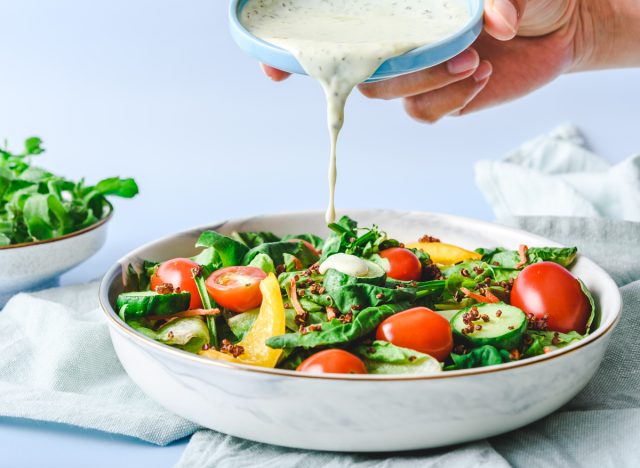
You can ruin any healthy salad by opting for the wrong dressing, and you may be surprised to learn which dressings are really bad for you. “Light dressings are the worst!,” says Laurell Eden, a weight-loss coach and founder of Body Up Coaching. “If you’re trying to lose weight, don’t eat the ‘light’ or ‘low fat’ version of anything!”
As Eden notes, many low-fat salad dressings may come as advertised—but they’ll also come with plenty of sugar. “It’s not the fat that’s bad for you,” she says.
According to a now-famous study by Purdue University, eating a little bit of fat with your salad actually helps the body absorb the vegetables in a healthier way. So read the label closely, and be on the lookout for red flags such as corn syrup, hydrogenated oils, and other insidious ingredients. And for more on which salad dressings you should avoid, don’t miss this list of The Worst Salad Dressings on the Planet!
Mayonnaise
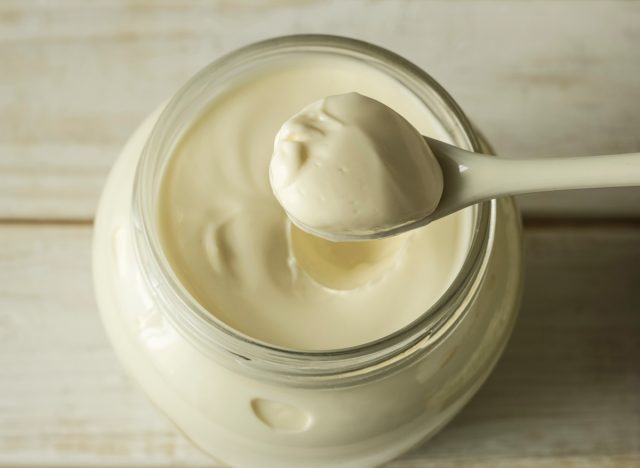
“When teaching health classes, I use food demonstrations to illustrate how quickly fat and calories can add up,” says Lynell Ross, of Education Advocates. “One of the highest-calorie, highest-fat food condiments is mayonnaise. It’s also full of sodium, which can lead to weight gain.”
In mayo, one little tablespoon can amount to 90 calories and 10 grams of fat. “Toss one cup to dress your coleslaw, potato, or tuna salad, and you add 1,440 calories—plus an additional 160 fat grams and half of your daily recommended amount of sodium,” says Ross. For healthier mayo alternatives, see our complete list of The Best & Worst Store-Bought Mayonnaises—Ranked!
Creamy Pasta Sauces
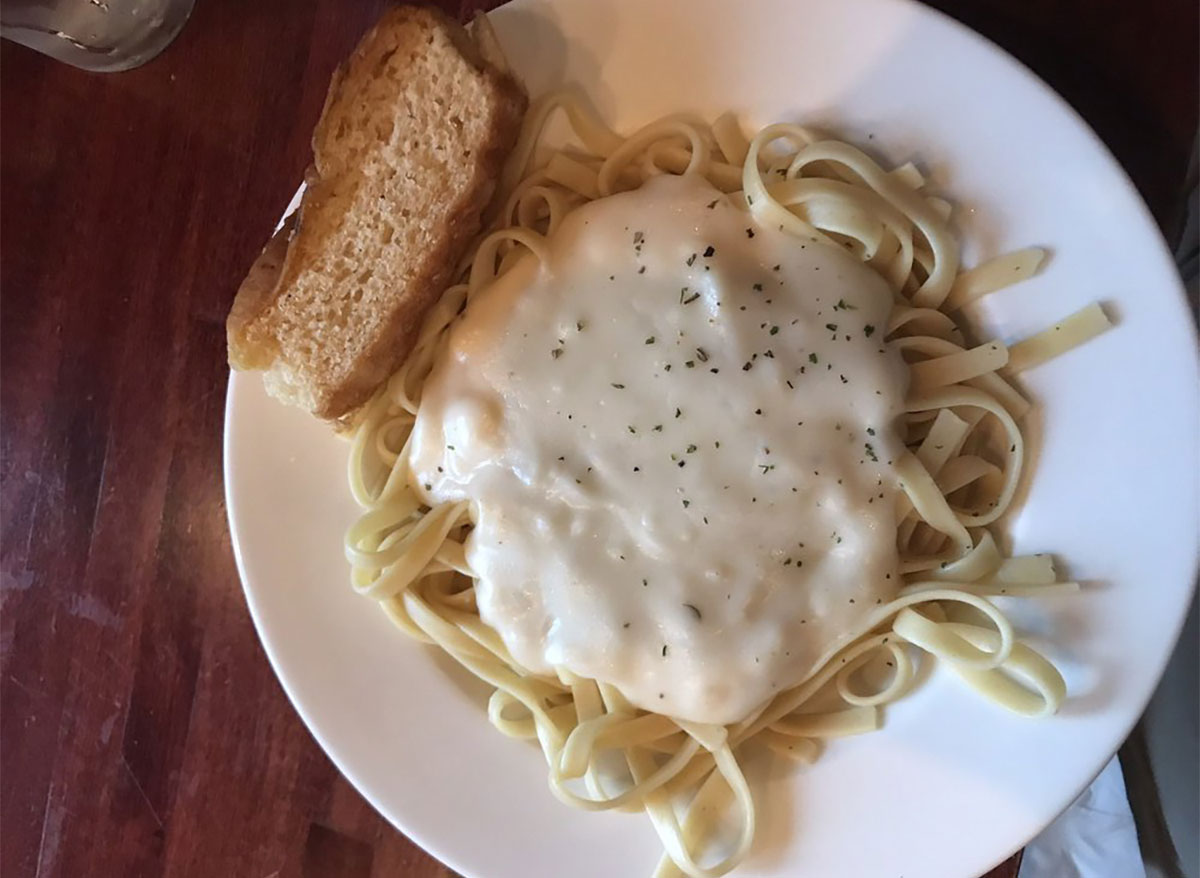
Whether you are getting a big sub sandwich, a bowl of pasta, or another meal where sauce can be added, creamy sauces tend to sneak up on you. “While they add great flavor and mouthfeel, they often bringing meals well above 1,000 total calories!,” says Brian St. Pierre, MS, RD, CSCS, Director of Performance Nutrition at Precision Nutrition. “Instead, try to order pasta with red or light white wine sauces.” For more pasta sauces to avoid, see this definitive ranking of The Worst Pasta Sauces on the Planet.
Heinz Barbecue Sauce
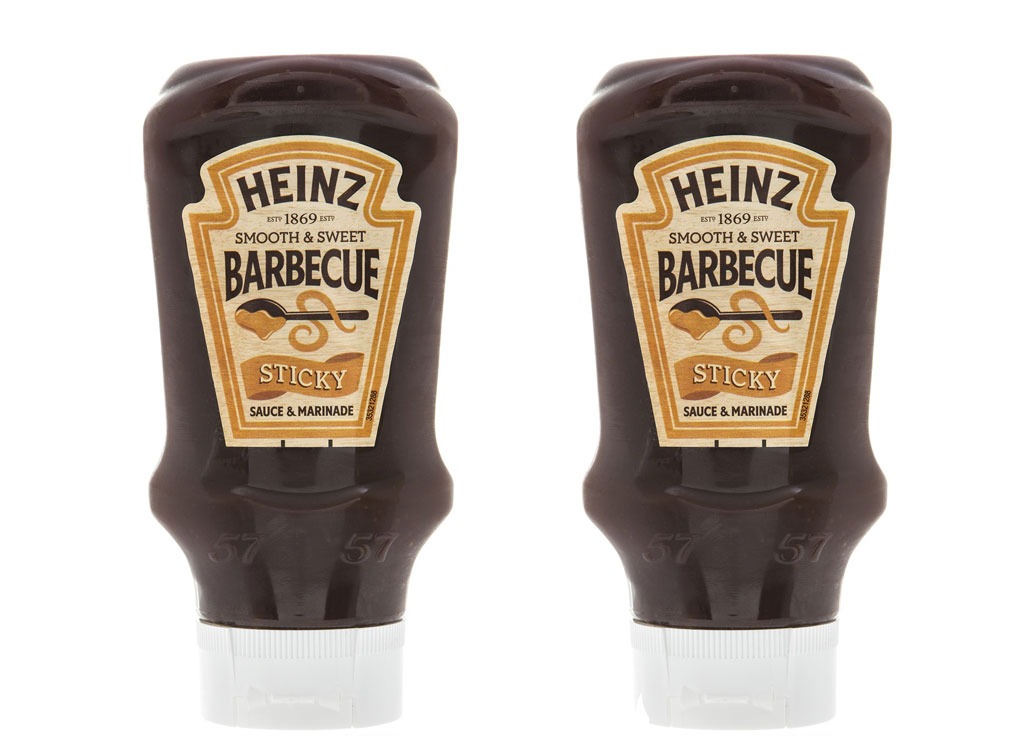
“For people monitoring and limiting their carbohydrate intake, I always make them aware of the sugar content in barbecue sauce,” says registered dietician Claudia Hleap MS, RD, LDN. “Heinz BBQ sauce contains 150 calories and 18 grams of carbohydrates for a 2-tablespoon serving! As a reference point, the average woman should consume approximately 30-45 grams carbohydrates per meal and the average man should consume approximately 30-60 grams carbohydrates per meal.”
Tartar Sauce
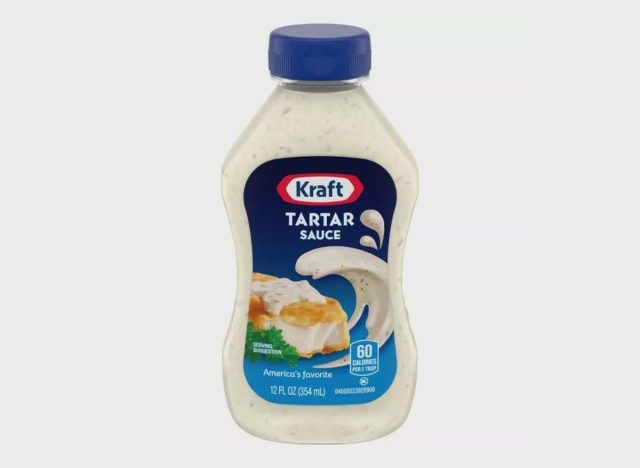
The ultimate seafood condiment may be derailing your weight-loss plans. “Just two tablespoons has about 140 calories, and the ingredients of tartar sauce often include high-fructose corn syrup, lemon juice concentrate, and natural flavors,” says Lisa DeFazio, MS, RD, a dietitian and author of the Women’s Health Big Book of Smoothies and Soups.
Pancake Syrup

Many popular maple syrup brands on grocery store shelves call their products “syrup,” but these gooey concoctions are primarily composed of high fructose corn syrup, artificial flavors, and caramel color—all ingredients that have been connected to a slew of health issues, from liver disease to cancer.
Teriyaki Sauce
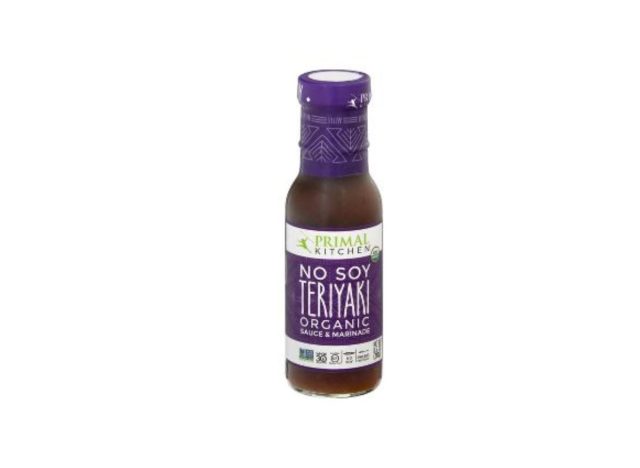
Few sauces instantly elevate chicken, salmon, and beef quite like teriyaki sauce. Unfortunately, that flavor comes at a high cost. Your favorite Asian-themed sauce may be jam-packed with high fructose corn syrup and sodium. So remember to always opt for the “low-sodium” option, if you choose to indulge.
Ranch Dressing
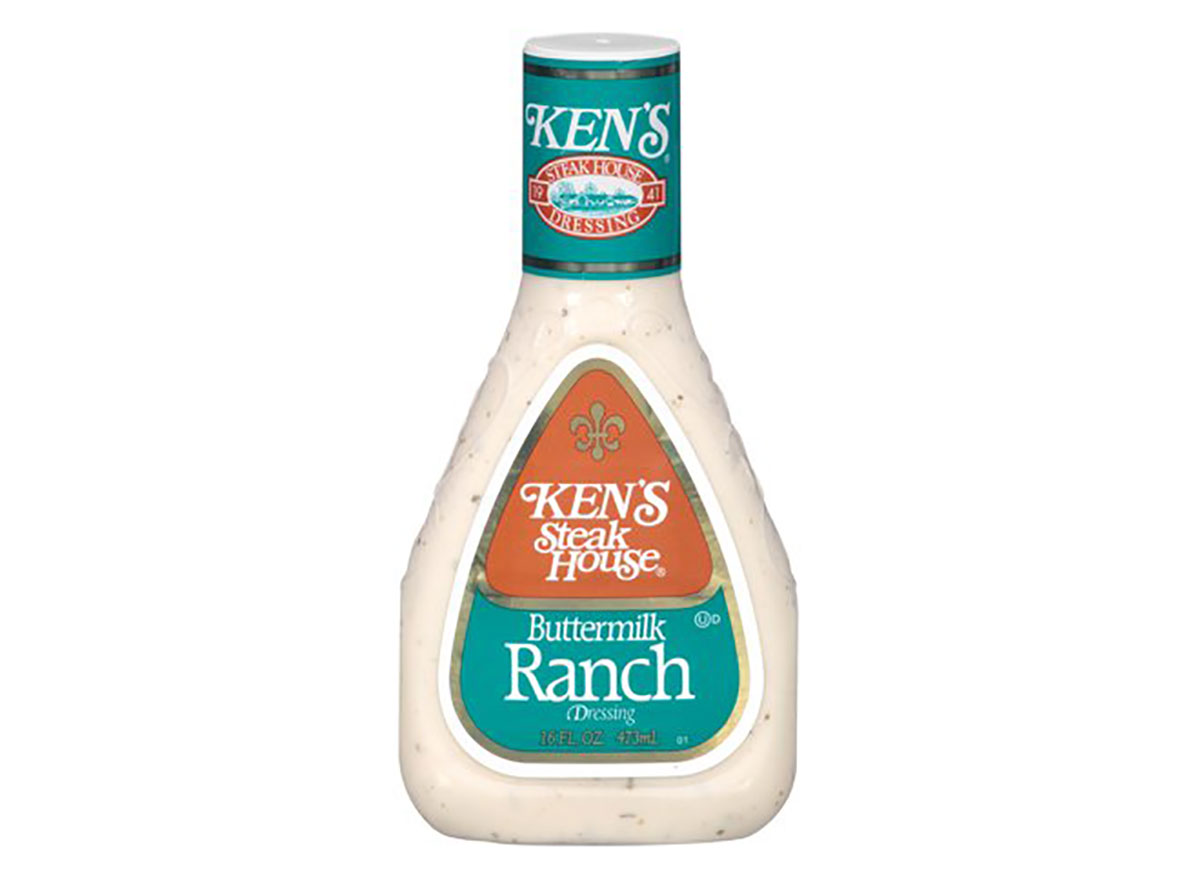
A single tablespoon of ranch dressing usually contains more calories and fat than your standard-issue chocolate-chip cookie. In the case of Ken’s Buttermilk Ranch—our winner of the worst salad dressing on the planet—two tablespoons contains 200 calories and 19 grams of fat. Throw in the soybean oil and things like “natural flavor,” and you’ll definitely want to opt for any other salad-dressing alternative. For help there, see these 10 Healthy Salad Dressings to Buy Right Now.








